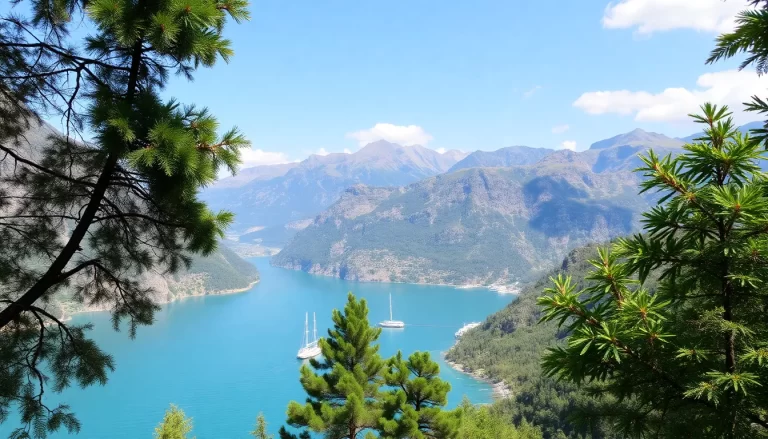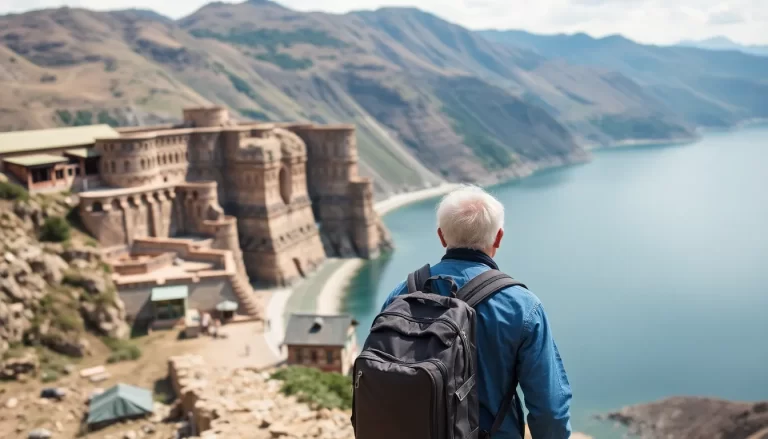As travel becomes increasingly accessible, many popular destinations are grappling with the consequences of overtourism. This phenomenon not only affects local ecosystems and communities but also diminishes the overall travel experience. Understanding the implications of overtourism and exploring viable solutions can help preserve these treasured locations for future generations.
Understanding overtourism
Overtourism refers to a situation where a destination receives an overwhelming number of visitors, causing strain on local resources, infrastructure, and communities. This issue has been magnified by the rise of budget travel options, social media, and the sharing economy, which have made it easier for people to explore the globe.
Many travelers may not realize the impact their visit has on a location. As these areas become overwhelmed, the local charm and authenticity often diminish. The experience of visiting places like Costa Rica’s Manuel Antonio National Park or the Palace of Versailles can drastically change, turning once serene environments into crowded tourist traps.
Statistics on overtourism
The numbers speak volumes about the growing issue of overtourism. The World Tourism Organization predicts that international tourist arrivals will increase by 3.3% annually until 2030, reaching around 1.8 billion travelers worldwide. This surge in tourism raises urgent questions about sustainability and the long-term viability of popular destinations.
- In cities like Venice, the number of tourists often exceeds the local population, intensifying the strain on public services and the environment.
- Over the past decade, destinations such as Barcelona and Amsterdam have reported significant increases in visitor numbers, contributing to growing tensions between locals and tourists.
- Social media platforms have amplified the popularity of specific locations, leading to unexpected surges in tourism that local infrastructure struggles to accommodate.
Consequences of overtourism
The consequences of overtourism extend beyond mere inconvenience. They include:
- Environmental degradation: Natural habitats suffer from the influx of tourists, who may leave behind litter and disrupt local wildlife.
- Economic imbalance: While tourism can provide a financial boost, the rising cost of living can displace local residents from their homes and communities.
- Loss of cultural identity: Overcrowding can dilute local customs and traditions as destinations cater more to tourists than to residents.
These consequences prompt destinations to rethink their tourism strategies and seek ways to strike a balance between welcoming visitors and protecting their local heritage.
Causes of overtourism
The surge in overtourism can be attributed to several key factors:
- Budget airlines: The rise of low-cost carriers has made international travel more affordable, leading to increased tourist numbers.
- Social media influence: The popularity of travel influencers and social media can draw attention to previously undiscovered locations, leading to increased foot traffic.
- Short-term rentals: Platforms like Airbnb have transformed the way people seek accommodations, often resulting in locals being pushed out in favor of tourists.
These factors contribute to a cycle of demand that overwhelms destinations, ultimately leading to overtourism.
Solutions to overtourism
Addressing the issue of overtourism requires a multifaceted approach. Here are several strategies that can help mitigate its effects:
- Implement visitor limits: Some destinations, like Dubrovnik and Easter Island, have started to impose restrictions on the number of tourists allowed at any given time.
- Encourage off-peak travel: Promoting travel during shoulder seasons can help distribute tourist numbers more evenly throughout the year.
- Incentivize responsible tourism: Educating travelers about the impact of their actions and promoting sustainable practices can foster a sense of responsibility among visitors.
- Support local businesses: Encouraging tourists to dine and shop at locally-owned establishments can help ensure that tourism dollars benefit the community.
How can travelers help prevent overtourism?
As individuals, travelers can play an essential role in combating overtourism. Here are some actionable steps:
- Choose alternative accommodations: Opt for renting rooms in local homes instead of entire properties on platforms like Airbnb.
- Explore lesser-known destinations: Instead of visiting the most popular sites, seek out hidden gems that are less frequented by travelers.
- Engage with local culture: Attend cultural events and support local artisans to contribute positively to the community.
By making conscious decisions, travelers can reduce their impact on popular destinations and promote sustainability.
Initiatives by countries to combat overtourism
In response to growing concerns about overtourism, several countries have begun implementing measures to manage visitor numbers and protect local communities:
- Barcelona: The city has banned new hotels and limited cruise ship arrivals to reduce congestion.
- Chile: Easter Island has introduced restrictions on the number of tourists allowed, as has Ecuador for the Galápagos Islands.
- Iceland: The government is considering limits on foreign property ownership to prevent the displacement of locals.
These initiatives highlight the need for proactive measures to protect beloved destinations while still allowing tourism to thrive.
The role of social media in overtourism
Social media plays a significant role in the overtourism crisis. Influencers and bloggers often showcase stunning destinations, inadvertently contributing to a rush of visitors eager to replicate the experiences they see online. While this can help promote lesser-known locations, it can also lead to overcrowding and environmental degradation.
Travelers should be mindful of the impact their social media presence can have. Sharing responsible travel tips and promoting sustainable practices can help counteract the negative effects of mass tourism.
Moving towards sustainable travel
As the conversation around overtourism continues, it is essential to focus on sustainable travel practices. By prioritizing the well-being of both travelers and locals, we can work towards a more balanced approach to tourism. Here are key principles to consider:
- Educate yourself: Learn about the destination’s customs, history, and challenges to foster respect and understanding.
- Practice environmental stewardship: Be conscious of your ecological footprint and engage in activities that protect natural resources.
- Support community initiatives: Contribute to local economies by participating in programs that benefit residents directly.
The future of travel depends on our collective ability to adapt and embrace responsible practices that benefit everyone involved.







